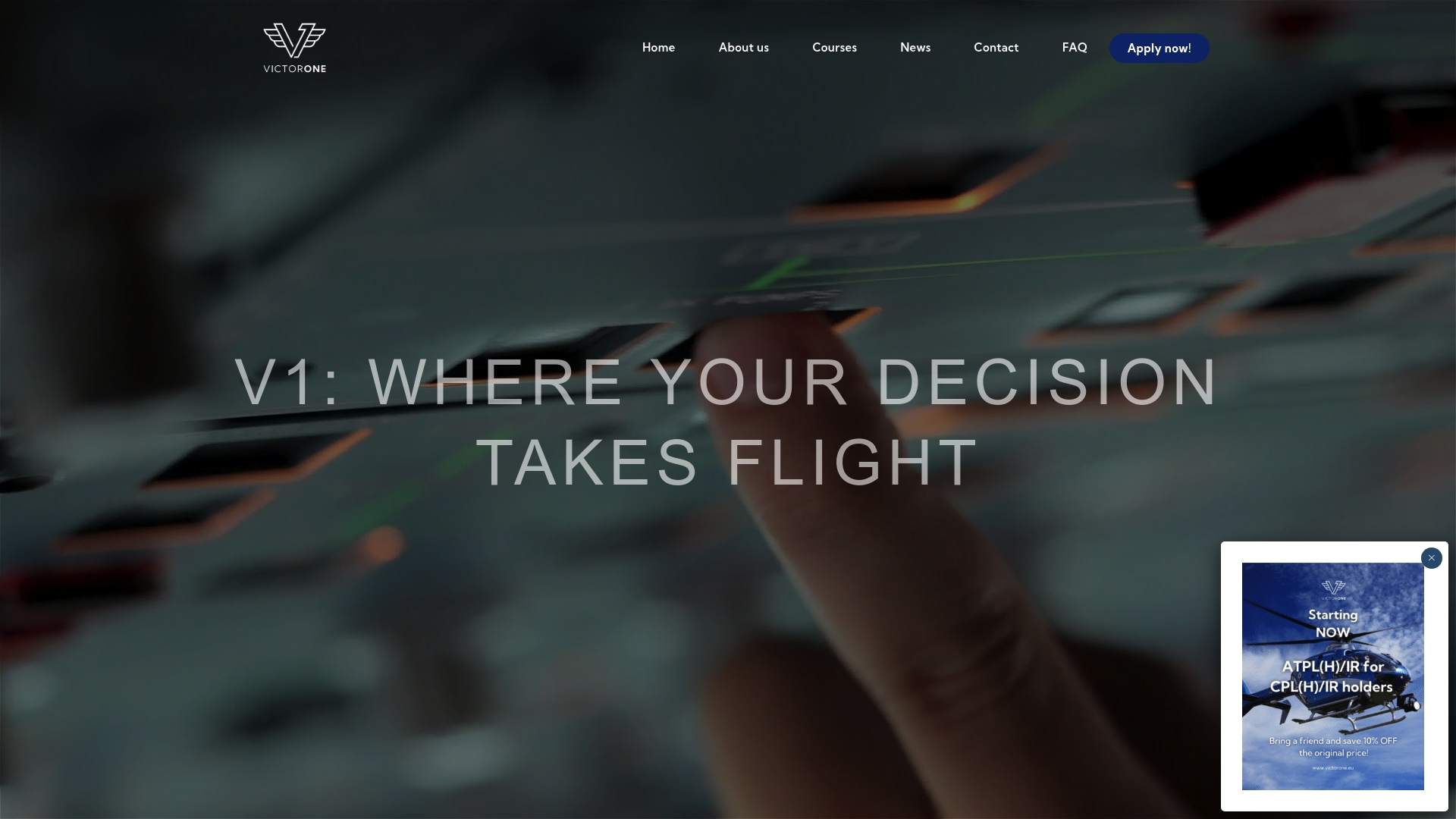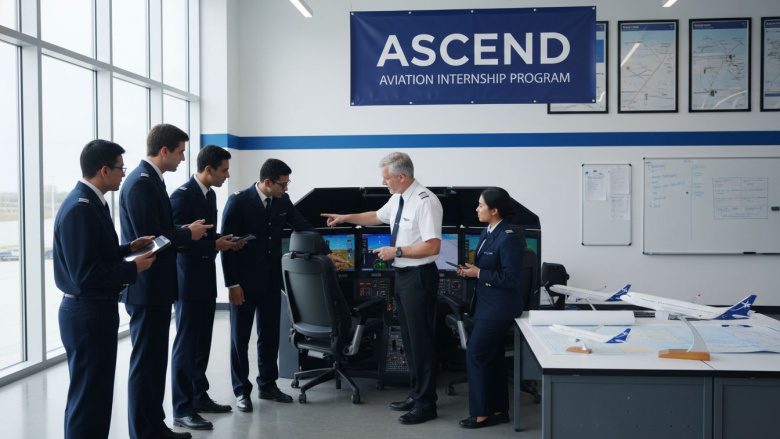Pilot exams demand far more than a stack of notes and an all-nighter. Studies show pilots who practise active recall and spaced repetition can retain up to 50 percent more information long term compared to rote learning. You might think memorisation is the main hurdle. Pilots who succeed actually rely on personalised tech-powered strategies and clever stress management to outpace the competition.
Table of Contents
- Essential Study Techniques For Pilots
- Managing Exam Stress And Staying Focused
- Adapting Study Plans For Aviation Exams
- Practical Tools And Resources For Revision
Quick Summary
| Takeaway | Explanation |
|---|---|
| Adopt competence-based training methods | Focus on real-world application of knowledge for better retention and cognitive skill development. |
| Utilise active recall and spaced repetition | Regular self-testing and reviewing material over time reinforces long-term memory essential for exams. |
| Implement stress management techniques | Techniques like mindfulness and controlled breathing enhance performance under pressure during exams. |
| Create personalized study plans | Tailor study approaches to individual strengths and weaknesses for more effective learning outcomes. |
| Incorporate technology in study aids | Use digital platforms and simulation tools for interactive learning experiences and performance tracking. |
Essential Study Techniques for Pilots
Navigating the complex world of pilot training demands more than memorization techniques. Effective study strategies are crucial for success in aviation examinations, requiring a multifaceted approach that goes beyond traditional learning methods.
Competence Based Learning Approaches
The European Union Aviation Safety Agency (EASA) recommends adopting competence-based training and assessment (CBTA) as a fundamental approach to pilot education. Our comprehensive ATPL theory course integrates these advanced learning methodologies, focusing on developing critical cognitive skills rather than simple rote memorization.
According to EASA guidelines, scenario-based training represents a transformative strategy in pilot education. This approach encourages students to apply theoretical knowledge to realistic flight situations, enhancing problem-solving capabilities and situational awareness. By simulating complex operational scenarios, pilots learn to think dynamically and respond effectively under pressure.
Strategic Study Techniques
Successful pilot training requires a structured and systematic study approach. Pilots must develop techniques that support comprehensive understanding and rapid information retrieval. Key strategies include:
- Active Recall: Regularly testing oneself using practice questions and mock examinations
- Spaced Repetition: Reviewing materials at increasing intervals to reinforce long-term memory retention
- Visual Learning: Utilizing diagrams, flowcharts, and mind maps to understand complex aviation concepts
Professional pilots emphasize the importance of understanding underlying principles rather than merely memorizing facts. This approach allows for more flexible and adaptive thinking during high-stakes examination scenarios.
Technological Learning Tools
Modern pilot training increasingly leverages digital technologies to enhance learning experiences. Interactive online platforms, simulation software, and digital question banks provide immersive and engaging study environments. These tools allow aspiring pilots to practice complex procedures, navigation techniques, and emergency responses in a controlled, risk-free setting.
The integration of technology enables personalized learning paths, allowing students to focus on areas requiring additional attention. Advanced learning management systems track progress, identify knowledge gaps, and provide targeted recommendations for improvement.
By combining structured learning methodologies, strategic study techniques, and cutting-edge technological tools, pilots can develop the comprehensive skill set required for successful aviation careers. Continuous adaptation, critical thinking, and a commitment to professional development remain the cornerstone of effective pilot training.
To clarify and compare the main study techniques mentioned, the following table summarises their key features and benefits:
| Study Technique | Description | Key Benefit |
|---|---|---|
| Active Recall | Regular self-testing with practice questions and mock exams | Reinforces long-term memory |
| Spaced Repetition | Reviewing material at increasing intervals | Prevents forgetting, improves retention |
| Visual Learning | Use of diagrams, flowcharts, and mind maps | Clarifies complex concepts |
| Scenario-based Training | Application of theory to realistic flight situations | Enhances problem-solving and adaptability |
| Technology-driven Practice | Interactive simulations, digital platforms, and question banks | Provides personalised feedback and tracking |
Managing Exam Stress and Staying Focused

Exam preparation for pilots involves more than technical knowledge mastery. Effective stress management and maintaining peak mental performance are critical components of successful aviation training and examination strategies.
Psychological Preparation Techniques
The European Union Aviation Safety Agency emphasizes the importance of comprehensive stress management in aviation training. Professional pilots must develop robust psychological resilience to maintain composure during high-pressure examination scenarios. Mindfulness and targeted relaxation techniques play a pivotal role in maintaining cognitive clarity and emotional stability.
Research from Aviation Psychology Journals indicates that pilots who engage in systematic mental preparation demonstrate significantly better performance under examination conditions. These techniques include controlled breathing exercises, visualization strategies, and cognitive reframing methods that transform stress into focused energy.
Physiological Stress Management
Physiological well-being directly impacts examination performance. Proper nutrition, consistent sleep patterns, and strategic physical preparation are fundamental to maintaining optimal cognitive function. Key strategies include:
- Balanced Nutrition: Consuming brain-supporting foods rich in omega-3 fatty acids and complex carbohydrates
- Sleep Hygiene: Maintaining consistent sleep schedules and ensuring 7-8 hours of quality rest
- Regular Exercise: Engaging in moderate physical activities to reduce stress and enhance mental clarity
The International Civil Aviation Organization recommends a holistic approach to pilot wellness, recognizing that physical and mental preparation are interconnected components of professional aviation training.
Strategic Examination Preparation
Successful pilots develop comprehensive strategies for managing examination pressures. This involves creating structured study schedules, practicing mock examinations under simulated conditions, and developing personal stress-mitigation techniques. Our comprehensive ATPL theory course provides integrated support systems designed to help students navigate examination challenges effectively.
Additionally, candidates should focus on developing adaptive mental frameworks that transform examination stress into productive concentration. This involves reframing anxiety as a natural response to challenging situations and developing personal strategies for maintaining emotional equilibrium.
Ultimately, managing exam stress requires a multifaceted approach that combines psychological preparation, physiological wellness, and strategic examination techniques. By implementing these comprehensive strategies, aspiring pilots can approach their examinations with confidence, clarity, and professional composure.
The following table summarises key stress management strategies for pilots preparing for exams:
| Stress Management Area | Example Technique | Purpose/Benefit |
|---|---|---|
| Psychological Preparation | Mindfulness, visualisation | Enhances emotional stability and focus |
| Physiological Wellness | Balanced nutrition, regular sleep | Supports optimal cognitive and physical function |
| Stress Mitigation Techniques | Controlled breathing, mock exams | Reduces anxiety and builds examination confidence |
Adapting Study Plans for Aviation Exams
Successful pilot training requires a dynamic and personalized approach to study planning. Aviation examinations demand not just comprehensive knowledge, but strategic preparation that addresses the unique challenges of pilot certification.
Personalized Learning Pathways
Modern aviation training recognizes that one-size-fits-all study approaches are ineffective. Our flexible ATPL theory course emphasizes individualized learning strategies that cater to different learning styles and professional backgrounds.
Research from Aviation Education Quarterly highlights that pilots benefit most from adaptive study plans that incorporate personal learning preferences. These plans should account for individual strengths, previous experience, and specific areas requiring additional focus.
Key considerations for personalized study planning include:
- Diagnostic Assessment: Conducting initial skill and knowledge evaluations
- Targeted Skill Development: Creating focused study modules addressing specific knowledge gaps
- Flexible Time Management: Designing study schedules that accommodate professional and personal commitments
Technological Integration in Study Planning
Advanced digital tools have revolutionized aviation exam preparation. International Civil Aviation Organization guidelines increasingly emphasize the importance of technology-enhanced learning environments that provide real-time feedback and adaptive learning experiences.
Digital learning platforms offer several critical advantages:
- Progress Tracking: Comprehensive analytics that monitor learning progression
- Adaptive Question Banks: Intelligent systems that adjust difficulty based on individual performance
- Simulation-Based Learning: Interactive scenarios that mimic real-world aviation challenges
Comprehensive Preparation Strategies
Effective study plans for aviation exams go beyond traditional memorization techniques. Professional pilots must develop holistic preparation strategies that integrate theoretical knowledge, practical understanding, and critical thinking skills.
Successful candidates typically implement multi-dimensional study approaches that include:
- Consistent review of technical materials
- Regular practice with mock examinations
- Engagement with professional aviation communities
- Continuous skill refinement through practical applications
The complexity of aviation examinations requires a systematic and disciplined approach to learning. Pilots must view their study plan as a dynamic roadmap, continuously adjusting and refining their strategies based on ongoing assessment and performance feedback.
Ultimately, an effective study plan for aviation exams is not just about accumulating information, but developing the cognitive flexibility, technical proficiency, and professional judgment required in high-stakes aviation environments. By embracing personalized, technology-enhanced, and comprehensive preparation strategies, aspiring pilots can optimize their chances of examination success and professional advancement.
Practical Tools and Resources for Revision
Revision is a critical phase in pilot training, demanding strategic use of innovative tools and comprehensive resources that go beyond traditional study methods. Aviation professionals require sophisticated, targeted revision strategies that mirror the complexity of their examinations.
Digital Learning Platforms
Our comprehensive ATPL theory course leverages cutting-edge digital resources designed specifically for aviation exam preparation. The European Union Aviation Safety Agency recommends integrated digital platforms that provide interactive, scenario-based learning experiences.
Aviation Training Research Journals highlight that digital learning platforms offer significant advantages over traditional revision methods:
- Adaptive Learning Algorithms: Intelligently track student progress and customize revision content
- Real-Time Performance Analytics: Provide immediate feedback on knowledge gaps
- Simulation-Based Assessments: Create realistic examination scenarios for practical skill development
Question Banks and Practice Examinations
Comprehensive question banks represent a crucial revision tool for aspiring pilots. The International Civil Aviation Organization emphasizes the importance of systematic practice using standardized examination formats.
Effective question bank strategies include:
- Comprehensive Coverage: Ensuring questions span all examination domains
- Difficulty Progression: Gradually increasing complexity to build confidence
- Detailed Explanations: Providing in-depth reasoning for correct and incorrect answers
Professional Reference Materials
Beyond digital platforms, professional reference materials form the backbone of effective pilot examination revision. Aspiring pilots should curate a comprehensive library of authoritative resources, including:
- Official aviation regulation documents
- Technical manuals and operational guidelines
- Current navigational charts and reference publications
- Professional aviation journals and research publications
Successful candidates recognize that revision is more than memorization. It involves developing a nuanced understanding of complex aviation systems, regulatory frameworks, and operational protocols.

The most effective revision strategies integrate multiple resources, combining digital platforms, structured question banks, and comprehensive reference materials. This multi-dimensional approach ensures candidates develop not just theoretical knowledge, but practical understanding and professional judgment.
Technological advancements continue to transform aviation training, with emerging tools like augmented reality simulations and AI-driven learning platforms promising even more sophisticated revision experiences. Aspiring pilots must remain adaptable, embracing innovative resources while maintaining a disciplined, systematic approach to examination preparation.
Frequently Asked Questions
What study techniques are most effective for pilots preparing for exams?
Utilising active recall and spaced repetition, along with visual learning methods, improves information retention. Competence-based training methods also enhance real-world application of knowledge.
How can pilots manage exam stress effectively?
Pilots can manage exam stress through psychological preparation techniques such as mindfulness and controlled breathing, combined with proper nutrition, sleep hygiene, and exercise to support physiological well-being.
What role does technology play in pilot exam preparation?
Technology facilitates interactive learning through digital platforms, simulation software, and adaptive question banks that provide tailored feedback and help track progress, enhancing the overall study experience.
How can I create a personalised study plan for aviation exams?
A personalised study plan should include a diagnostic assessment to identify knowledge gaps, targeted skill development focusing on specific weaknesses, and flexible time management that accommodates your personal and professional commitments.
Turn Exam Challenges into Aviation Success with VictorOne
Struggling to convert theory into practical exam readiness? Pilots preparing for EASA or ICAO examinations face unique hurdles like mastering competence-based learning, building personalised revision plans, and using technology to overcome stress and information overload. Many aspiring aviators worry about retaining vital knowledge and achieving exam confidence, especially with high professional standards at stake.

Stop letting uncertainty slow your aviation journey. At VictorOne.eu, you can access a full suite of EASA-approved ATPL and ICAO-focused online courses designed to help you apply top study techniques directly. Our flexible digital learning resources, expert guidance, and interactive revision tools make it possible to master active recall, spaced repetition, and real-world scenario-based preparation from your own home. If you are ready to strengthen your exam strategy and accelerate your commercial aviation goals, visit VictorOne.eu today. Discover how our solutions can help you start or advance your pilot career without delay.
Recommended
- ATPL(A) Theory Online Course – 100% online – Complete course with flexible payment – VictorOne
- VictorOne – Aviation Training Solutions – ATPL Online Course – VictorOne – VictorOne
- ATPL Theory: Is ATPL Hard? Is It Really That Difficult?
- Top ATPL Tips and Tricks – VictorOne
- GRE Analytical Writing: Essential Strategies and Formats
- blog | siift | How to Find Business Ideas in 2025: Proven Steps for Students and New Grads


